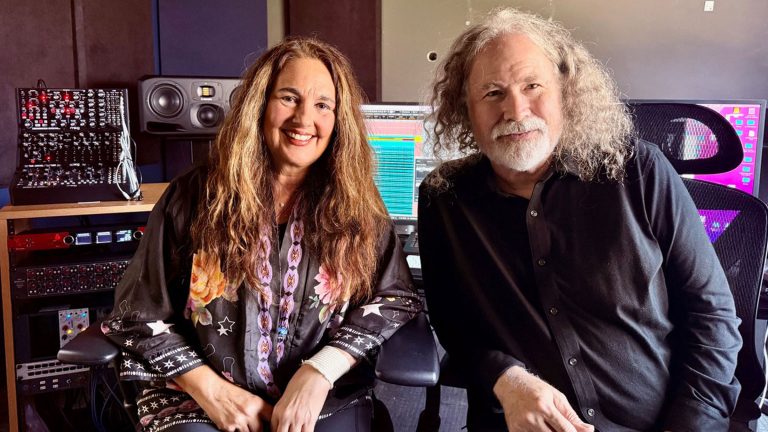Christian music has seen a remarkable transformation in recent years, evolving from traditional hymns to a vibrant mix of genres that resonate with diverse audiences. By 2025, this genre has not only adapted to cultural shifts but has also embraced technology and the influence of pop culture, making it a vital part of worship and community life. As we explore the rise of Christian music, we celebrate how it continues to inspire faith and connect people through song.
Key Takeaways
- Christian music has evolved significantly, integrating various genres from hymns to contemporary styles.
- The rise of technology has transformed how worship music is produced and experienced, making it more accessible.
- Diversity in musical styles helps churches reach wider and more culturally varied audiences.
- Christian artists are gaining more recognition in mainstream pop culture, reflecting a growing acceptance of faith-based music.
- Youth engagement is crucial, with social media playing a key role in connecting younger generations to Christian music.
The Evolution of Christian Music
From Hymns to Contemporary Praise
Christian music has changed a lot over time. It wasn’t always the rock and pop-influenced stuff we hear today. Think back to the old hymns – simple melodies, powerful messages. Now, contemporary praise music dominates many churches. It’s interesting to see how the music has adapted, but it’s also good to remember where it all started.
- Traditional hymns focused on scripture and reverence.
- Contemporary praise often emphasizes personal experience.
- Both aim to connect people with God, just in different ways.
It’s easy to get caught up in the new sounds and forget the rich history of Christian music. The old hymns still have a lot to offer, and they remind us of the roots of our faith.
The Impact of Cultural Shifts
Culture plays a huge role in shaping music, and Christian music is no exception. As society changes, so does the music we use to worship. The rise of diverse musical styles in churches reflects the changing demographics and preferences of congregations. It’s not just about keeping up with the times; it’s about reaching people where they are.
Emergence of New Genres
Christian music isn’t just hymns and contemporary praise anymore. New genres are popping up all the time, blending faith with different musical styles. Think Christian hip-hop, electronic worship music, and even faith-based indie rock. These new sounds are attracting younger audiences and offering fresh ways to express faith. It’s exciting to see how artists are pushing boundaries and creating music that speaks to a new generation.
- Christian hip-hop uses rap to share messages of faith.
- Electronic worship music incorporates synths and beats.
- Faith-based indie rock offers a more alternative sound.
Diversity in Worship Music

Incorporating Various Musical Styles
Okay, so worship music isn’t just hymns anymore, right? It’s like, churches are finally realizing that people connect with God in different ways, and that includes music. You’ve got your traditional stuff, sure, but now you’re also hearing gospel, some churches are even trying out rap, and there’s definitely a growing indie worship scene. It’s cool to see churches experiment with different musical expressions to reach more people.
Reaching Culturally Diverse Audiences
It’s not just about different genres, either. It’s about different cultures. Churches are starting to use music that reflects the backgrounds of their congregations. Think about it: a church with a big Latino population might incorporate Latin rhythms and instruments, while a church with a strong African American community will probably lean into gospel traditions. It makes sense, right? Music is a powerful way to connect with people on a deeper level, especially when it reflects their own experiences. This is a great way to make everyone feel welcome and included.
Theological Significance of Genre Diversity
Okay, this might sound a little deep, but hear me out. The kind of music we use in worship actually says something about what we believe about God. Like, gospel music is all about joy and celebration, while a more folk-inspired sound might be more introspective. By using a variety of genres, churches can communicate different aspects of their faith. It’s like, each style of music offers a different lens through which to view God. It’s not just about what sounds good, but what message the music is sending. I think that’s pretty important.
It’s about recognizing that God speaks to us in different ways, and music is one of those ways. By embracing diversity in worship music, churches can create a more inclusive and meaningful experience for everyone.
Technology’s Influence on Christian Music
Advancements in Music Production
Okay, so, music production has changed a lot. It’s not just about fancy studios anymore. Now, even smaller churches can get pretty decent sound because the equipment is way more accessible and affordable. Think about it: you can record a whole album on your laptop these days. This has really leveled the playing field.
- Better software means better sound quality, even on a budget.
- More churches are investing in decent sound systems for live performances.
- Online collaboration tools make it easier for musicians to work together, even if they’re not in the same place.
Live Streaming and Digital Worship
Live streaming? Huge. It’s not just for gamers anymore. Churches are using it to reach people who can’t make it to services in person. Whether it’s because they’re sick, traveling, or just live too far away, they can still participate. And it’s not just a one-way thing either. Digital worship platforms are popping up everywhere, making services more interactive.
It’s pretty cool how technology is helping people connect with their faith, no matter where they are. It’s not the same as being there in person, but it’s a solid alternative.
The Role of AI in Music Creation
AI in music? Yeah, it sounds like something out of a sci-fi movie, but it’s real. We’re not talking about robots replacing musicians, but AI can help with things like composing melodies or creating backing tracks. It’s like having a virtual assistant for your creativity. Some people are worried it’ll make music less authentic, but others see it as a tool to create personalized worship experiences. It’s still early days, but it’s definitely something to keep an eye on.
- AI can help generate song ideas.
- It can create custom arrangements for different instruments.
- It can even help with mixing and mastering tracks.
The Role of Christian Music in Pop Culture
Mainstream Recognition of Faith-Based Artists
It’s interesting to see how Christian music is popping up more and more in mainstream culture. More faith-based artists are getting recognized, and it’s not just in Christian circles anymore. You see them on TV, hear them on the radio, and they’re even winning awards. It feels like there’s a growing acceptance, or at least awareness, of Christian themes in popular music. This is a big change from even a decade ago, when it felt like Christian artists were often kept separate. The industry is paying attention to these trends.
Christian Music on Reality TV
Reality TV has always been a mirror reflecting what’s popular, and lately, Christian music has been making appearances. Whether it’s a singing competition featuring gospel tunes or a talent show where contestants share their faith through song, it’s clear that producers recognize the appeal. It’s not always a perfect fit, and sometimes it can feel a little forced, but the fact that it’s there at all says something. It shows that there’s an audience for Christian artists and that networks are willing to tap into it.
The Intersection of Faith and Popularity
Balancing faith and popularity can be tricky. For artists who are openly Christian, there’s always the question of how to stay true to their beliefs while also appealing to a wider audience. Some artists manage to do it really well, creating music that’s both meaningful and catchy. Others struggle, feeling pressure to compromise their values for the sake of fame. It’s a constant negotiation, and it’s not always easy to see where the line is. It’s a tough spot to be in, trying to navigate the contemporary praise scene.
It’s important to remember that popularity doesn’t always equal quality or authenticity. Just because a song is a hit doesn’t mean it’s necessarily good or that it truly reflects the artist’s faith. It’s up to each listener to decide what resonates with them and what feels genuine.
Here are some things to consider:
- The artist’s message: Is it consistent with Christian values?
- The music’s impact: Does it inspire or uplift?
- The artist’s actions: Do they live out their faith in their daily life?
Youth Engagement Through Music
Attracting Younger Audiences
It’s no secret that getting young people involved in church can be tough. The world is full of distractions, and traditional church services don’t always connect with the younger generation. That’s where music comes in. Churches are starting to realize that incorporating different musical styles can be a game-changer. Think less organ music and more contemporary worship with a modern sound.
- Adding elements of pop, hip-hop, or even electronic music.
- Creating a more relaxed and informal atmosphere during services.
- Encouraging young musicians to get involved in the worship team.
The Role of Social Media
Social media is where young people spend a lot of their time, so it makes sense to use it to connect with them through music. Churches can use platforms like YouTube, TikTok, and Instagram to share music videos, live performances, and behind-the-scenes content. It’s also a great way to promote upcoming events and get young people excited about worship. I saw one church that did a whole series of short videos explaining the meaning behind their songs, which was pretty cool.
Social media offers a unique opportunity to engage with youth on their terms. By creating content that is both relevant and engaging, churches can build relationships and foster a sense of community.
Creating Community Through Music
Music has the power to bring people together, and that’s especially true for young people. When they feel like they’re part of something bigger than themselves, they’re more likely to stay involved. Churches can create community through music by:
- Organizing youth-led worship services.
- Hosting open mic nights where young people can share their own music.
- Creating opportunities for young people to connect with each other through music-related activities.
| Activity | Description
The Future of Christian Music
Predictions for Upcoming Trends
Okay, so what’s next for Christian music? I think we’re going to see even more blending of genres. Think Christian hip-hop becoming even bigger, maybe some Christian drill (if that’s not too weird), and definitely more electronic elements creeping in. The key is authenticity; people can spot a fake a mile away.
- More collaborations between Christian and mainstream artists.
- Greater emphasis on lyrical depth and theological accuracy.
- Increased use of virtual reality in worship experiences.
I’ve been thinking a lot about how Christian music can stay relevant. It’s not just about catchy tunes; it’s about connecting with people on a deeper level. The music needs to speak to their struggles, their hopes, and their faith in a way that feels real and relatable.
The Influence of Global Music Styles
Christian music isn’t just a Western thing, and it’s exciting to see how other cultures are shaping it. African gospel, Latin praise, Asian worship styles – they’re all bringing something unique to the table. This global exchange is going to make Christian music way more diverse and interesting. I’m personally excited to see how indie Christian music evolves with these influences.
Sustaining Authentic Worship Experiences
With all the tech and trends, it’s easy to lose sight of what worship is really about. It’s not a performance; it’s a genuine expression of faith. Churches and artists need to be intentional about creating spaces where people can connect with God in a real way. It’s about creating an atmosphere where people can feel safe to be vulnerable and express their love for God. Here’s what I think is important:
- Focus on heartfelt lyrics that resonate with real-life experiences.
- Encourage congregational participation and engagement.
- Use technology to enhance, not replace, genuine connection.
Here’s a quick look at how different elements might play out:
| Element | Trend |
|---|---|
| Music Styles | Global fusions, genre-bending |
| Technology | VR/AR integration, AI-assisted creation |
| Worship | Intimate, participatory, authentic |
| Lyrical Themes | Social justice, personal struggles |
Celebrating Faith Through Song

The Power of Music in Worship
Music, honestly, it’s just… powerful. It gets to you in a way words alone sometimes can’t. In worship, it’s like the volume gets turned up on everything. You’re not just hearing a message; you’re feeling it. It’s why some songs just stick with you, you know? They become part of your soul. It’s more than just entertainment; it’s connection.
Personal Stories of Transformation
I remember talking to my friend Sarah last week, and she was telling me about this one song that got her through a really tough time. It wasn’t even a super popular song, but the lyrics just hit her right where she was. It’s amazing how a simple melody and some heartfelt words can completely shift your perspective. Music can be a lifeline, a source of strength, and a reminder that you’re not alone. It’s like finding a sacred song that speaks directly to your heart.
Community Building Through Music
There’s something special about singing together. Whether it’s in a church, at a concert, or even just around a campfire, music creates a bond. You’re all sharing the same experience, the same emotions. It breaks down barriers and reminds you that you’re part of something bigger than yourself. It’s like everyone is on the same wavelength, and it’s a pretty awesome feeling. It’s like those old hymns, they just bring everyone together.
Music does something to us. It unites us, it heals us, and it gives us hope. It’s a universal language that speaks to the deepest parts of our being. It’s a gift, and we should cherish it.
Here are some ways music builds community:
- Shared experiences during live performances.
- Singing in unison creates a sense of unity.
- Music provides a common ground for diverse groups.
A Bright Future for Christian Music
As we look ahead, it’s clear that Christian music is not just surviving; it’s thriving. The blend of diverse styles and the impact of technology are reshaping how we experience worship. More artists are stepping up, bringing fresh sounds and perspectives that connect with younger audiences. This isn’t just about music; it’s about community and faith coming together in new ways. Whether it’s through a live concert or a streamed service, the spirit of worship is alive and well. So, as we move into the future, let’s celebrate this evolution and embrace the songs that inspire us to grow in our faith.
Frequently Asked Questions
What is the history of Christian music?
Christian music has changed a lot over time. It started with hymns in churches and moved to modern praise songs. Now, it includes many styles like pop, rock, and rap.
How diverse is Christian music today?
Today, Christian music includes many different styles. Churches use gospel, rap, indie, and electronic music to connect with people from various backgrounds.
How has technology changed Christian music?
Technology has made a big difference in how we create and share Christian music. Churches now use streaming services and high-tech sound systems to reach more people.
Are Christian artists gaining recognition in mainstream media?
Yes! More Christian artists are being noticed in popular culture. Shows like American Idol often feature Christian songs and artists, showing that faith-based music is popular.
How do young people engage with Christian music?
Young people are connecting with Christian music through social media and online platforms. This helps build a sense of community and makes worship more relatable.
What does the future hold for Christian music?
The future of Christian music looks bright. We can expect even more variety in styles and the use of new technologies, making worship experiences more engaging and personal.







